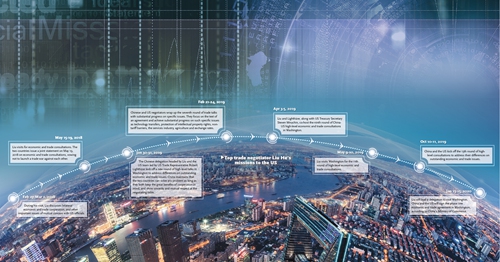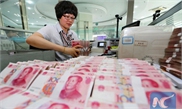Phase one deal goes beyond agriculture
Agreement will be balanced, legally binding on both parties: sources

Graphics: GT
The upcoming phase one trade agreement between China and the US will cover a wide range of areas from intellectual property rights (IPR) to enforcement mechanism, and the terms will be balanced and legally binding on both sides, sources close to the trade talks and analysts told the Global Times on Sunday.As Chinese and US officials are poised to sign the phase one trade deal later this week, the market has been largely focused on speculation about the amount of China's purchases of US products, particularly agricultural goods. Such a single-minded focus on specific amounts is misguided, given the broader scope of the deal, the sources and analysts said.
Chinese Vice Premier Liu He will depart for Washington on Monday to sign the phase one agreement with US officials on Wednesday morning (US time), according to Chinese officials. Contents of the highly anticipated deal remain scarce, although US officials and media reports have floated figures of China's commitment to purchase US products, particularly agricultural products - a politically sensitive issue for the White House.
But more than just purchases, Chinese and US officials have likely also made more breakthroughs in other areas such as IPR and an enforcement mechanism, said Bai Ming, deputy director of the Ministry of Commerce's International Market Research Institute.
"If there was no progress made in these areas, neither China nor the US would agree," Bai told the Global Times on Sunday, adding that such progress was made based on the "greatest common denominator" of both sides' interest.
Chinese officials announced at a press conference on December 13 that the text of the phase one agreement will include nine chapters, including sections on IPR, technology transfers, food and agricultural products, financial services, foreign exchange rates, transparency, and two-way assessment, according to a transcript of the press conference.

Photo: VCG
A source close to the trade talks said that the phase one agreement will include language regarding these areas, but it will be balanced. "Balance is a highlight of the phase one deal," the source told the Global Times on Sunday, adding that the deal will be legally binding on both parties as opposed to previous suggestions from US officials that the deal would be in favor of the US."You will see what I mean by this when you see the final text of the agreement," the source said.
Bai also pointed out that China has already been paying greater attention to IPR protection, and it has already implemented a new Foreign Investment Law that includes language on technology transfers.
"There are some discrepancies between the two sides' understanding of these issues, but overall they are not too big of a problem," he said.
Such progress in the phase one trade deal could be more significant to the future of trade negotiations, analysts said. The progress could also be important to the overall trade relationship between the world's two biggest economies, going beyond just short-term purchases of US goods, because it will pave the way to a balanced approach toward bilateral relations, analysts said.
The agreement will also be in line with established international norms and WTO rules, and it won't affect existing trade agreements involving the two countries, the source said, adding that there will be many more highlights in the final text, which is expected to be released by both sides immediately after it is signed.
As for China's purchases of US goods, including agricultural and other items, Chinese officials said at the press conference that while China will "definitely" increase imports from the US as part of the phase one deal, such increases will be carried out by companies in line with WTO rules and following market and commercial principles.
Under the phase one deal, the US has also committed to roll back tariffs on Chinese products in stages, which analysts said would be a boon to both Chinese and US businesses as well as multinationals that have been hit hard by the punishing tariffs.



